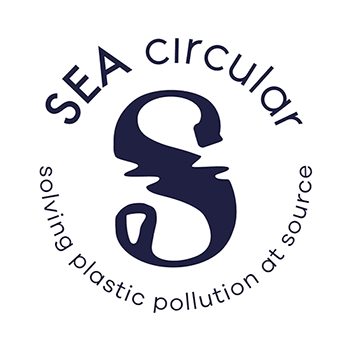
From Policy to Practice: Designing Inclusive EPR Schemes for Sustainable Packaging and Plastic Waste Reduction
Bangkok, 11 October 2024
Bangkok, 17 September 2024 – The SEA circular project organized an in-depth capacity building session on Extended Producer Responsibility (EPR), specifically focusing on packaging waste management as a crucial aspect of addressing plastic waste challenges. The event brought together 39 participants from 14 countries, including ASEAN member states, to explore the practical implementation of EPR schemes aimed at enhancing plastic waste management efforts in the region. Attendees included representatives from Producer Responsibility Organizations (PROs), government officials, members of the informal sector, and various associations, highlighting the collaborative effort needed to address plastic waste challenges.
EPR is a policy approach that shifts the responsibility of waste management from local authorities to producers and importers of packaging. This event aimed to tackle three critical aspects of EPR policies essential for their effective implementation:
- Key Principles of EPR for Legislative Development
ASEAN countries are in the process of developing and implementing EPR policies and legislation. The session provided insight for prioritizing key areas for national legislation, helping policymakers navigate the complexities of EPR frameworks. Cambodia and Thailand shared their experiences in introducing mandatory EPR schemes, including setting collection and recycling targets for producers, establishing Producer Responsibility Organizations (PROs) and EPR funds, engaging the informal sector, raising public awareness, and developing guidelines and standards. - Role and Responsibility of Producer Responsibility Organizations (PROs)
Participants explored the importance of PROs, both voluntary and mandatory, in managing waste operations within EPR schemes. Discussions included the elements required to operationalize EPR effectively across different national contexts and the challenges and opportunities for PROs, including in Indonesia, the Philippines and Malaysia, which include legal and regulatory requirements, need for capacity building and training, health and safety, and social inclusion and protection of the informal waste sector. - Just Transition for the Informal Waste Sector
The session focused on integrating, including and recognizing informal waste workers into formal EPR systems. Recommendations were made on legal recognition, fair compensation, health and safety, human rights, and capacity building for informal waste pickers. Emphasis was put on the potential role of PROs and associations of informal waste pickers can play in EPR schemes, as part of the upcoming UNEP report on EPR and a just transition for waste pickers, which was also presented during the event.
The event highlighted the need for inclusive policies that support the informal sector while strengthening waste management systems. Participants emphasized the necessity of transparent EPR schemes and incentive structures that ensure the protection and fair treatment of informal waste workers.
This session marks a significant step forward in regional efforts to implement sustainable waste management practices, paving the way for more robust EPR systems across ASEAN.
About SEA circular project
The SEA circular project – Reducing marine litter by addressing the management of the plastic value chain in Southeast Asia is implemented by the UNEP Regional Office for Asia and the Pacific and the Coordinating Body on the Seas of East Asia (COBSEA), with funding support from the Government of Sweden. SEA circular aims to reduce and prevent plastic pollution and its impact by working with governments, businesses, civil society, academia, and international partners. The initiative promotes market-based solutions and enabling policies to transform plastic value-chain management, strengthens the science base for informed decision making, creates outreach and awareness. The project leverages COBSEA’s regional mechanism to tackle the transboundary challenge of marine litter in a harmonized manner.
Contact Us
Website: www.sea-circular.org
Email: sea-circular@un.org
news

